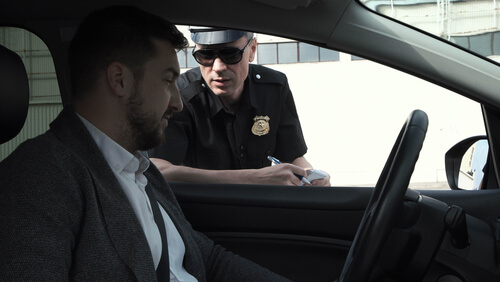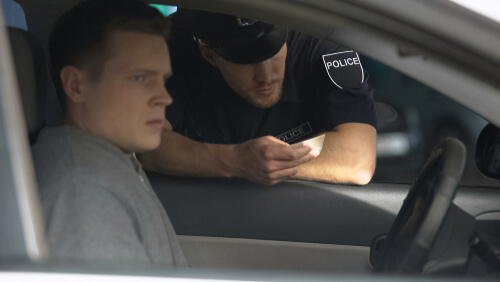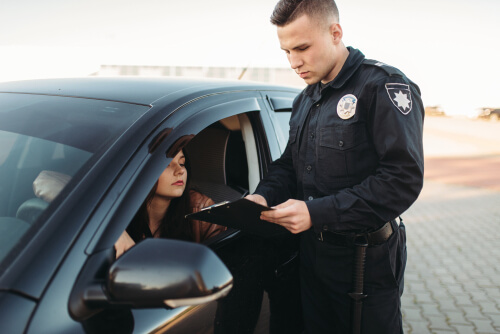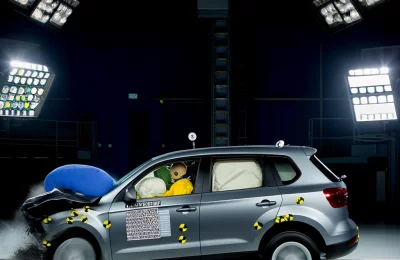
Reading Time: 4 minutes
The majority of people older than 16 years of age in the US have drivers licensed. In the first quarter of 2019, there were more than 276 million vehicles on American roads. That equates to trillions of miles driven every year. It only makes sense that traffic control is a massive job, and that’s why a moving violation is a big issue.
In the early days of automotive history, back in the 1920s, traffic laws were first introduced. These days, they are an important part of state codes and the bane of some people’s existence. However, their purpose is to reduce road deaths and to ensure fair use for everyone.

Types of Moving Violations
Traffic tickets are typically issued on a strict-liability basis, which means that a person can be convicted of the offense even if there’s no criminal intent. The law only needs to show that the person was guilty of performing the prohibited act, which might be any of the following general traffic violations:
- Speeding
- Driving without headlights
- Failure to use turn signals
- Turning into the wrong lane
- Failure to yield
- Overdue parking meters
- Parking in a handicap spot without a sticker
Moving violations occur when you violate traffic law while the vehicle is in motion, and includes driving under the influence of drugs or alcohol, running a red light or stop sign, or speeding. Non-moving violations are typically related to faulty equipment or parking (too close to a curb, in front of fire hydrants, in front of an expired meter, in a no-parking zone, excessive muffler noise).
Infractions vs. Violations
Infractions are not considered a crime, and therefore the penalty is a fine. If you are found guilty of an infarction, you will not receive a large fine, go to court or be jailed. Infractions include:
- Non-dangerous moving violations
- Non-moving violations
In some states, speeding tickets are large, because the fine is based on the number of miles per hour the offender was driving over the speed limit.
There’s a difference in definition of violations and infractions between states, but violations are typically considered a crime. Additionally, more serious violations are often classified as misdemeanors or felony traffic violations, including:
- Driving under the influence (DUI – drinking or drugs)
- Driving without auto insurance
- Reckless driving
- Failure to stop at the scene of an accident.
If you are charged with a misdemeanor or a felony traffic violation, you have the same rights as any criminal defendant. You will be processed through the booking and bail application, and you will have the right to a court appointed attorney to represent you through a jury trial.

Moving Violations: Understanding Your Rights
Driving at night, you spot flashing lights in the rear-view mirror. Your mind might think of ways to escape, but it’s best to cooperate with the police officer. Slow down, put on your hazard lights, and pull over safely, rolling down the window when they arrive. Remain calm, polite and cooperative, and provide your license and registration when requested.
- Turn on your right turn signal – As soon as you see the flashing lights and have determined that it is safe, pull over to the right. Stopping close to the scene of the violation will ensure you have the best idea of what you did wrong. You could also observe the area, which might help you to contest the ticket. Perhaps there’s a new sign, or an old sign might be obscured.
- Turn off the engine. Every year, law enforcement officers are killed during routine traffic stops, so you may be treated with suspicion, so don’t give any cause for alarm.
- Place your hands on the steering wheel and avoid making sudden movements, such as rummaging through the glove compartment for your documentation until you are asked to do so.
Stay Calm
- Wait for the officer to talk to you – You may greet the officer, but wait for them to ask you questions, or for your vehicle registration and driver’s license.
- Do not admit guilt – Simply give yes and no answers to questions. You won’t be able to argue your way out of a ticket, and whatever you say may be used in court.
- Do not try to bribe the officer – Bribing law enforcement officers is highly unethical and it is actually a crime.
- Stay seated – Always remain in your seat unless the officer asks you to get out of the car. You may be patted down and if they find anything suspicious, they may search the car.
The officer may ask you to sign a ticket. Remember that it does not mean you admit guilt. It only states you will appear in court or pay the fine. You must pay the fine online or via mail, not the officer.

How Long Does a Moving Violation Remain on Your Record?
Each state has its own laws, but a moving violation typically stays on your record for three to ten years. Minor offenses may remain on your record for much shorter than three years. In some states, a serious violation, such as a DUI will stay on your record forever.
It’s best to avoid moving violations altogether, as your driving record directly affects your car insurance premium, as you are a high risk to the insurer. In some cases, a second DUI can increase your premium by as much as 163%.
When buying a car from out of state, or driving across the country for whatever reason, you may become tired, and this puts you at risk for a moving violation. Instead of facing fines and ruining your driving record, rather save your money (and your record!) and ship the car. It’s a small once-off price to pay to keep your record pristine.



